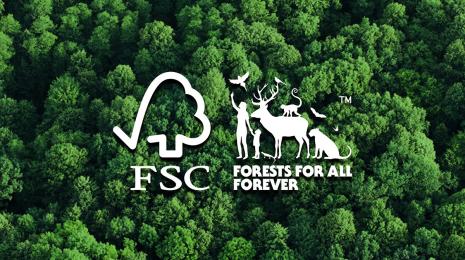Hispanic-Latinx Heritage Month: When to check the identity box

Participating in Hispanic-Latinx Heritage Month at Tableau, I had the opportunity to reflect on what it means to be Latina, how I identify with that community, and the value and impact of being part of these groups—both at Tableau and the larger community.
I’ve had an incredible, successful story as an immigrant in this country—no humble brag here! I’ve had great jobs and have been able to raise my family in a place we love. I’ve grown to be a marketing executive in one of the hottest tech companies in the world with a mission I deeply believe in. I now feel a broader responsibility for how and when I declare my identity. Both being a woman in tech and a Latina carries a weight that I wish it didn’t—I wish both of those attributes were so common in our industry that no one had to note them. But that is not the world we live in. While identity is something complex and deeply personal, it is also a social stance.
My immigrant story doesn’t start with me. I am the daughter of an immigrant and his mother was an immigrant from Italy. My father was Argentinean and I grew up in a bubble of exiled communists in the oil town of Maracaibo, Venezuela. My country was a safe haven for many people from the Southern Hemisphere during the dictatorships of the 1970s—among them many from Argentina and Chile, including the famous writer Isabel Allende.
When I was getting ready to leave Venezuela, my dad said to me, “Immigrants have no country. You’ll never be from where you are going and at some point, you’ll stop being from where you came from.” He advised me to avoid staying with other Venezuelans or even other Latinxs. He wanted me to adapt and strive, not to spend my days with the nostalgia of my country.
So I did. In my first decade in the US, I didn’t even acknowledge my identity as Latina very often. You see, I don’t fit the stereotypes people often have—I learned English at a young age so my accent is pretty mild, I have a fair complexion, I wear little to no makeup, I’m an atheist, and I don’t eat Venezuelan food often. At work, I didn’t want to be boxed into Latin American projects or clients just because I was from there.
I also found checking a box for my ethnicity offensive. I felt it went against my values—there’s a lot more that we have in common than what separates us, and I didn’t feel it was good to emphasize our differences. I’ve never been into labels. I like to discover people for who they are. And I’ve rarely met anyone that fits the broader descriptions of their “group.”
But in time I came to understand the power of that box. I realized how the predominant narrative in this country is the Caucasian male narrative. In fact, I came to understand how prevalent this narrative was in the world and how much this shaped what we consider to be perfect, beautiful, fair, safe. So when we check that box, diversity gains power. It says there are many narratives in the world—and they are all important and valid.
So I changed. I now check the Latinx/Hispanic box with pride. I feel a responsibility, particularly as I have ascended my career, to claim who I am and where I came from, and to help others have a voice and a seat at the table. Because one perspective is never right. You see, truth can only be found when we work together and share different perspectives. It's like being in a dark, tight room not knowing there's an elephant in there—we have no room to move around and are only able to touch one part of the animal. We would never figure out it's an actual elephant unless we all shared what we felt from each of our little corners!
Someone asked me what immigrants can do to preserve their culture. My answer: It’s each person’s choice. As much as there is public discourse on identity, it’s still all about you. Each one of us has to discover our own path to who we are. It doesn’t have to be one box, or any box for that matter—it’s each person’s choice to decide when and how they claim their identity. But know that while it’s a personal choice, it does have impact on others. So take time to discover and decide what’s right for you.
In the meantime, I hope you all got a chance to celebrate Hispanic-Latinx Heritage Month, took some time for personal reflection, and got to know more about the rich culture we have. If you didn’t, it’s not too late. Listen to some Latinx music, go to a restaurant, watch a film, or simply talk to one of us. Many of us love talking about our culture and would appreciate your curiosity.
Here at Tableau, we celebrate diversity and inclusion not only with our employees, but with the Tableau Community at large. And this year, at our upcoming Tableau Conference, we have a lot of great D&I experiences—including a Diversity & Inclusion meetup, a Data + Women session, a special breakfast for military veterans and family, several sessions in our new Aha! Theater, a D&I booth in Data Village, and countless opportunities to continue conversations through Brain Dates and networking. Whether you're attending TC or not, you can always be a part of the conversation with #VisualizeDiversity. We hope you'll join us.
Related Stories
Subscribe to our blog
Get the latest Tableau updates in your inbox.








